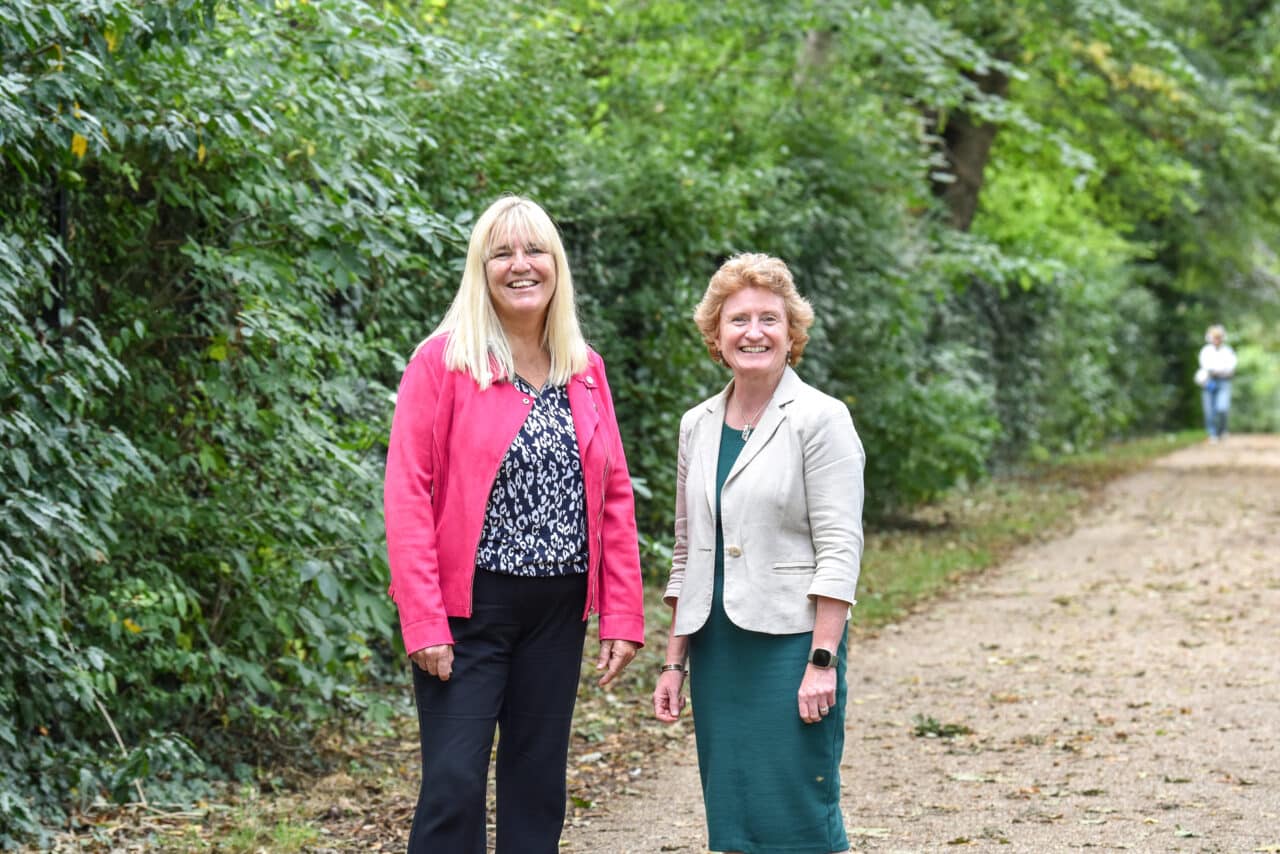Why GCSEs are no longer fit for purpose
Just a few short weeks ago, we welcomed back our GCSE cohort to collect their exam results. As with every year, there were tears of happiness and some of disappointment but on the whole, the mood was celebratory. There were proud parents and teachers and an overwhelming sense of relief. It was a moment where we could all thank goodness for a return to relative normality and an exam season remarkably free from COVID-related disruption. Good news and a sign of things going back to how they should be – except, I am beginning to wonder if this is one thing we should be relegating to the past.
GCSEs don’t make sense. Why test children when they are still required to complete another two years of study (whether through A Levels, apprenticeships or another form of full or part-time education)? The school leaving age has risen incrementally over the years – hard to believe but prior to the Education Act of 1914, few people would remain in education beyond the age of 12. It rose to 14 in 1914. As recently as 1972, it was raised to 16, then eventually in 2015, all were expected to participate in education until the year in which they turn 18. For most that means a full-time course of A Levels in a programme chosen by the student which then allows them the opportunity to specialise in their areas of strength. This leads to terminal examinations which are used to determine entry to universities and looked at by employers. What, then, do GCSEs offer?
Not so very long ago, you would regularly see top schools boasting about pupils achieving 13, maybe even 15 or 16 GCSEs. The media would delight in finding the highest number of A*s one individual could attain. A fantastic achievement for those individuals but at what price? While your university or employer will likely want to see you’ve achieved a pass in Maths and English, very few are likely to pore over the results of your extra subjects and decide that this – rather than the extra-curricular or leadership activities another candidate brings to the table – is what differentiates you and makes you the successful applicant. With such a large portfolio of subjects, it’s simply not possible to study them all in the necessary depth while also maintaining a healthy attitude towards your learning. At Headington we have already taken steps to reduce the number of exam subjects sat by our pupils, with the majority taking nine GCSEs and encouraged to take an additional one-year qualification (we offer the Higher Project Qualification, School Certificate in Philosophy and Award in Financial Education) as a tenth subject. However, I don’t think this goes far enough.
Any parent of a 16 year old will tell you about the toll that our current system takes upon them. Learning new material must stop earlier to ensure an opportunity for mock examinations, to practise being tested and ascertain what is known. Holidays are dominated by revision. So much revision! Children with no natural aptitude or interest in a subject will find themselves hating it all the more for having to go over it again and again in the hope they can regurgitate that information on the exam day. While schools offer varying degrees of choice, there is a commonality in the subjects they must study, with most mandating that courses are chosen from a range of different blocks. The English Baccalaureate, a measure which state schools are assessed upon, means many will consider English, Maths, Science, a humanity and a language subject a must. Great for breadth, less good for the child for whom, for example, language learning takes twice as long and is half as successful. So much assessment leaves so little opportunity for creativity, for enrichment and for learning for learning’s sake. Where is the time to go into greater depth – to unlock unexpected interests and light a spark of passion as you delve into new territory?
It is of course possible for a school to help its pupils achieve good results without teaching to the test, drilling facts mercilessly and sucking all the joy out of a subject. But it’s not easy when some of those more innovative and exciting approaches risk children not ‘reaching their academic potential’ based on a final exam; if it means there might not be time to go over chunks of ‘essential content’ sufficiently frequently that everyone gets it. It’s a risk many schools, judged on their results by families, the media and indeed the Department for Education, cannot afford to take under the current climate. It’s a system which sets up a vast swathe for failure. There’s a lot of focus at the top of the board, the mythical earners of 7s, 8s and 9s (your straight A students in old money) and these are the numbers which schools will publish. A lot less attention goes on the one in ten nationally who will achieve only 1s or 2s. If you have a bad day, if you are unwell, or have a crisis of confidence or suffer a family emergency, this could happen to you, even as a typically-high achiever. The focus on final exams means that examiners don’t get to see any of the excellent work individuals complete throughout the year. They just see what they manage to do on the day.
In a girls’ school we often find ourselves investing a great deal of time encouraging our pupils to make sure they take study breaks, to pace themselves and to ensure they are not spending too much time on revision. While this is certainly not true of all girls, we do tend to see high numbers of conscientious young people who feel they need to do one more page…one more hour’s revision… just go through it one more time. Anxiety and stress are very common at pinch-points and having so many exams just exacerbates this. Conversely, my colleagues in all boys’ schools will often find they are the ones who have to provide the impetus to step up the pace and spend more time in preparation. We have some of those too! The loss of coursework has a particularly detrimental effect on girls, statistically speaking, who often perform better when this kind of work is taken into account while, in general, boys get better results when the final exam alone is considered. Is it fair to favour a system which gives one gender such a significant advantage? Whatever the attitude towards work and revision, the potential for stress is sky high and arguably almost entirely unnecessary. With mental health problems in children and young people reported at an all-time high following so much disruption and uncertainty from the pandemic, do we really need to be adding to it?
Exams are expensive too. There are entry costs for each subject… invigilators are required…then there’s the marking and moderation. If the result doesn’t reflect your expectation or your child’s identified potential, expect to pay even more for a remark. The greatest expense, though, over and above financial concerns, is one of time. All those hours spent in revision, in mock exams and their marking and moderation and in the final exams themselves – think what more could be achieved if we considered how better we could use those hours to enrich and enhance learning.
There is a lesson to be learnt that sometimes you do only have one chance to get something right – but there has to be a better way than sitting endless exams. Even the very way in which we take exams is something which is replicated in few real-life situations. How often as adults are we sat in silent rooms, writing, our future depending on what we can demonstrate on paper in just one or two hours? There are some professional qualifications where you can expect to be assessed similarly but they are the exception rather than the norm.
There are certain skills and knowledge that all young people should strive to acquire and I would not argue that a degree of assessment is unnecessary but this kind of high stakes, summative assessment tells us little. Good teachers will spend much of their time in formative assessment – constantly identifying what has been learnt and demonstrated well, and where there are gaps. Then with that information, they can tailor their teaching to ensure everyone has grasped the concepts they are trying to convey. This kind of assessment has value – you can use it to plan and to make sure children are better prepared and give them a second chance to tackle something they didn’t comprehend first time around. Compare this, then, to what we get from GCSEs – a single stark number. How can this improve someone’s comprehension or shape their further study? If we are not able to use the information GCSEs give us then what value does it have? What is the point?
We need to find a novel method of assessment which does not pose undue stress on these young people but instead helps them identify their strengths and weaknesses and supports them in finding what they want to pursue from a position of information and confidence. In my experience, the best learning happens when you are engaged and excited – when you are empowered to explore avenues that inspire you. Such a narrow focus on exams does not provide enough scope for this kind of truly enriching learning and, as any teacher will tell you, cramming facts, dates and formulae does not equal retaining that information in any usable form.
We can’t just throw out GCSEs overnight, much as I might like to. Those teaching further qualifications need to know that their new students are suitably prepared and will cope with the academic workload of A Levels or their alternatives. It is also important that schools can be held to account so parents can make an informed decision on who they entrust their children’s education too (although exam results alone will only tell a very small part of the picture). What we need to do is open the conversation and have a real discussion about the purpose and future of GCSEs and find a better alternative that works for everyone.



